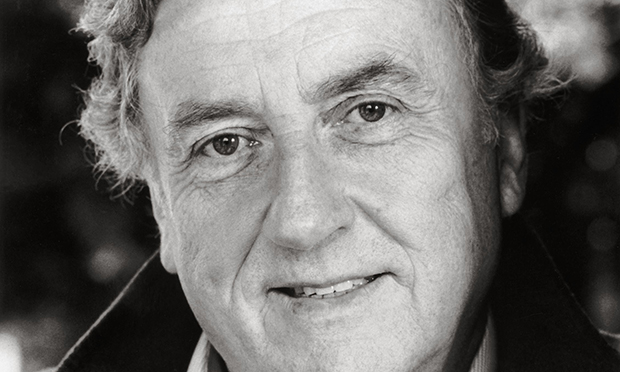Local actor issues diabetes warning with diagnoses on the rise in Hackney

Actor and London Fields resident Desmond Barrit is urging people to check for the early warning signs of diabetes – as new research reveals diagnoses are on the increase in Hackney.
Analysis by leading charity Diabetes UK found that the number of people diagnosed in City & Hackney is up from 14,158 to 14,576 in the last year – representing nearly six per cent of the borough’s total population.
In the UK, one in ten people over the age of 40 are now living with a diagnosis of Type 2 diabetes.
The figures show there are 3.8 million diabetics in the UK – 90 per cent of those with Type 2.
But Diabetes UK claims there is almost a million more people living with undiagnosed Type 2 diabetes, bringing the total figure to around 4.7 million.
It predicts this number will rise by 800,000 by 2030.
Barrit, best known for his stage work but also for long-running roles in The Bill and Midsomer Murders, has Type 2 and is warning people to look out for symptoms.
They include going to the toilet a lot, being really thirsty, feeling more tired than usual and losing weight without trying, and can be easy to miss especially in the early stages.
Nine years ago, Barrit was busy rehearsing a play with Dame Judi Dench for the Royal Shakespeare Company, while also putting on a musical in Norfolk.
On a train journey between the two venues, he noticed his right foot was swollen. By the following day, it was so bad that he couldn’t tie up his shoelaces, and a friend who was a nurse told him to get it checked.
He went to hospital and was asked straight away if he had diabetes.
Recalling the moment, the 74-year-old said: “I had never thought about diabetes and I certainly didn’t know it could cause foot problems.
“It turned out that I did have diabetes although I hadn’t been aware of any signs or symptoms.
“The doctors thought it likely that I had had the condition for six or seven years. And the first thing I knew was when my foot was starting with gangrene.”
The actor had a toe amputated immediately and later lost three more.
He now wears special footwear and adapts his roles and rehearsals to take account of foot.
“I make adjustments in my daily life to keep myself healthy,” he explained. “I don’t want diabetes to run my life but I have to find a balance between the condition and the things I want to do.
“What I want to say to people is that diabetes is a condition which can have serious complications and should be taken seriously.”

Photograph: Diabetes UK
Diabetes UK says the “dramatic increase in obesity rates is the main driver behind so many more people living with Type 2 diabetes in the UK”.
Three in five adults in England are overweight or obese, and while not every case of Type 2 diabetes is caused by excessive weight, it is the single greatest risk factor for developing the condition.
Age, family history, and ethnicity can also contribute to someone’s risk, with people of African-Caribbean, Black African, or South Asian descent two to four times more likely to develop Type 2 diabetes than white people.
Many cases of Type 2 diabetes could be prevented or delayed by healthy eating, being more active, and losing weight.
The condition can often go undetected for many years, and according to the Diabetes UK, by the time of diagnosis, one in three people already have complications with their eyes, feet, kidneys or nerves.
With 12.3 million people at risk of developing Type 2 diabetes, the charity wants to raise awareness of the risk factors so people can take steps to prevent or delay the onset of the condition and its serious complications.
It recommends that everyone uses its free online tool to find out their risk of developing Type 2, and is urging people aged 40 or over to take up a free NHS health check.
The charity’s London chief, Roz Rosenblatt, said: “Thousands of Type 2 diabetes cases could be prevented if we help people understand their risk and how to reduce it.
“Even though the older people get the more likely they are to have Type 2 diabetes, it is never too early to know your risk so that you can make changes to prevent or delay it.
“The signs of Type 2 diabetes are often not obvious, that’s why spotting them early can be life-changing.
“Early diagnosis means that fewer people will experience diabetes-related complications such as sight loss, amputation, kidney failure, stroke and heart disease, because they could seek support to manage their condition effectively as soon as possible.”
To find out your risk of developing Type 2 diabetes, head to diabetes.org.uk/riskscore
For more information about NHS health checks, visit nhs.uk
For more on the latest statistics and facts about diabetes, go to diabetes.org.uk
